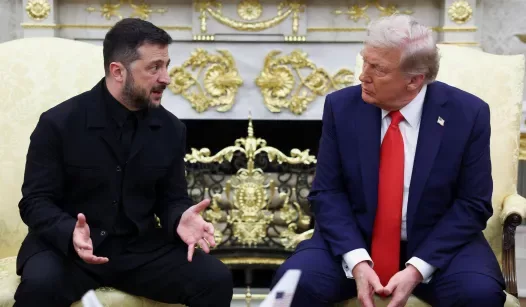The ongoing conflict in Ukraine has sparked intense debates about the role of the United States in international affairs. As the war continues, some voices argue that America should fully support Ukraine, even to the extent of making it a long-term ally or dependent. However, this perspective warrants careful examination. The notion of permanently binding Ukraine to U.S. interests raises critical questions about sovereignty, foreign policy, and the implications for both nations.
To understand why America should avoid making Ukraine a permanent dependent, it’s essential to consider several key factors: the importance of Ukraine’s sovereignty, the potential for long-term instability, and the implications for U.S. foreign policy.
First and foremost, Ukraine is a sovereign nation with its own history, culture, and political landscape. The desire to support Ukraine in its fight against aggression does not necessitate transforming it into a dependency. By fostering a relationship based on mutual respect and cooperation rather than dependency, the U.S. can help Ukraine build its own resilience and strength. This approach respects Ukraine’s agency and allows it to navigate its own path toward stability and prosperity.
Furthermore, creating a permanent dependency could lead to long-term instability. History has shown that nations that become overly reliant on external powers often struggle to establish their own governance and economic systems. If the U.S. were to assume a role that implies permanent support, it could inadvertently undermine Ukraine’s ability to develop its own institutions and governance structures. This could lead to a cycle of dependency that stifles Ukraine’s growth and self-determination.
Another critical aspect to consider is the broader implications for U.S. foreign policy. A strategy that leans toward making Ukraine a permanent dependent could set a precedent for other nations, leading to a fragmented global landscape where the U.S. is seen as a patron rather than a partner. This could complicate relationships with other countries and regions, as nations may feel pressured to align with U.S. interests rather than pursue their own independent agendas. Such a shift could also provoke backlash from nations that view U.S. involvement as imperialistic, thereby fueling anti-American sentiments globally.
Moreover, the financial and military resources required to support a permanent dependency could strain U.S. capabilities. With pressing domestic issues and other international commitments, the U.S. must carefully assess its priorities and the sustainability of its foreign aid. A strategy that emphasizes partnership rather than dependency allows for a more balanced approach, enabling the U.S. to allocate resources effectively while still providing meaningful support to Ukraine.
In addition, the political landscape in the U.S. is constantly evolving. Public opinion on foreign aid and military involvement can shift rapidly, influenced by domestic issues and electoral cycles. Committing to a permanent dependency could leave Ukraine vulnerable to changes in U.S. political will, jeopardizing its stability and security. Instead, a flexible partnership model would allow both nations to adapt to changing circumstances while ensuring that Ukraine remains empowered to make its own decisions.
The importance of international cooperation cannot be overstated. While the U.S. plays a significant role on the world stage, it is crucial to recognize that global challenges require collaborative solutions. Encouraging Ukraine to engage with other nations and international organizations can foster a more stable and supportive environment. By promoting multilateralism, the U.S. can help Ukraine build a network of allies, reducing its reliance on any single power.
In conclusion, while the U.S. should continue to support Ukraine in its fight against aggression, it must do so in a way that respects Ukraine’s sovereignty and promotes its independence. Creating a permanent dependency would not only undermine Ukraine’s ability to thrive but could also have far-reaching implications for U.S. foreign policy and international relations. A partnership based on mutual respect and cooperation will ultimately empower Ukraine to navigate its own path while allowing the U.S. to maintain a principled and sustainable approach to foreign engagement. As the situation evolves, it is vital for policymakers to remain vigilant and adaptable, ensuring that the support provided aligns with the principles of sovereignty and self-determination.
